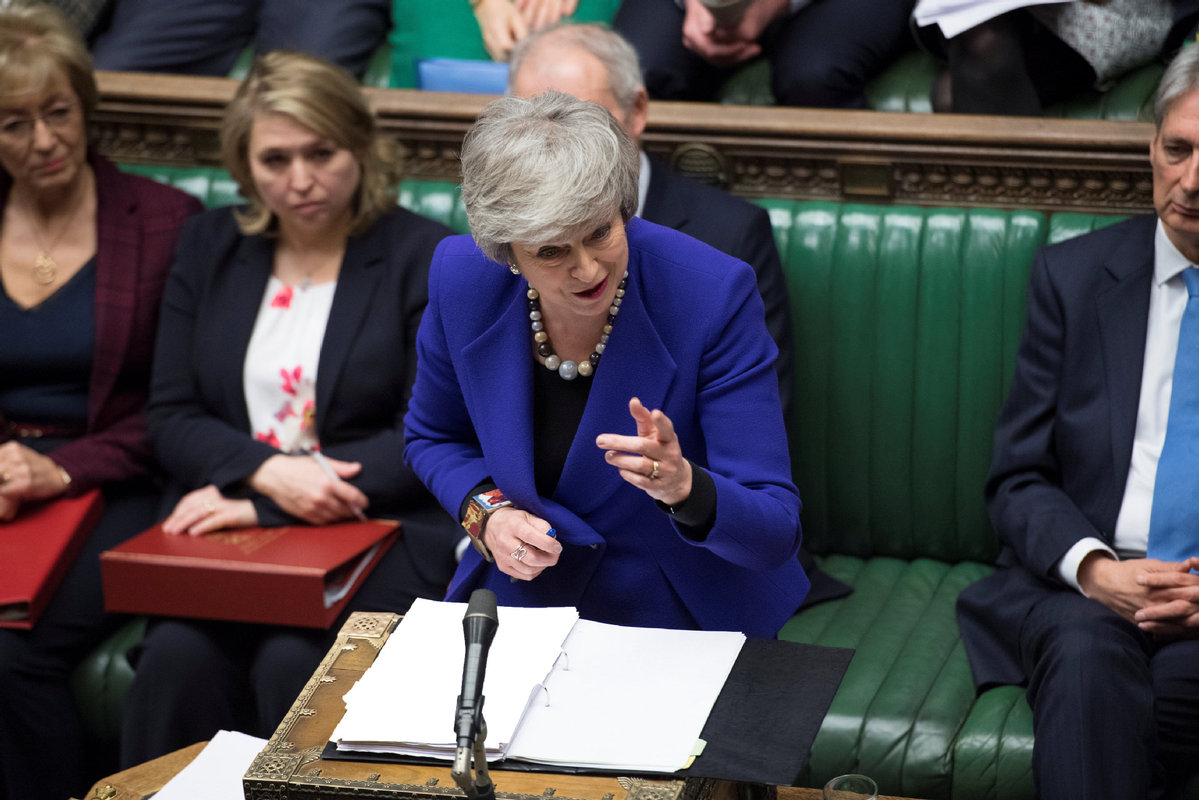EU negotiator, Council chief tell Britain's May: No renegotiation
Updated: 2019-01-31 09:16
MAY MEETS CORBYN

Brexiteers accept there is likely to be some short-term economic pain but say Britain will thrive in the long term if cut loose from European rules. Pro-Europeans say Britain’s exit will make it poorer, reduce its global clout, undermine London’s position as a global financial capital and weaken the West.
Britain voted 52 percent to 48 percent to leave the EU in a 2016 referendum. Brexit supporters say it would betray democracy to fail to act on that mandate. Opponents say voters may have changed their minds now that the details are becoming clearer.
Opposition Labour leader Jeremy Corbyn, who favours a much closer relationship with the EU, built around a customs union, met May to discuss Brexit.
"Jeremy made the case for our alternative plan," the spokesperson said, adding that the tone had been "serious and engaged" and that the two had agreed to meet again.
If May cannot get a deal agreed, the default option would be to exit the EU abruptly with no deal at all, which businesses say would cause chaos and disrupt supply chains for basic goods.
"This will hit Britain harder than others," German Economy Ministry Peter Altmaier said. "The coming days must be used to finally prevent a hard Brexit."
British lawmakers on Tuesday also approved a proposal urging the government to prevent a no-deal exit, sending a signal that a majority opposes it. However, they rejected two amendments that set out a clear path for parliament to prevent it.
Many company chiefs are aghast at London's handling of Brexit and say it has already damaged Britain’s reputation as Europe’s pre-eminent destination for foreign investment.
The investment bank Goldman Sachs raised its probability of a no-deal Brexit to 15 percent from 10 percent, kept its probability of a delayed Brexit at 50 percent, and revised down its probability of no Brexit to 35 percent from 40 percent.
Reuters
























